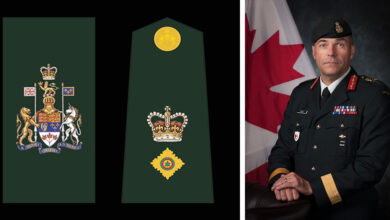Policy
CAF announces process change regarding complainants in sexual misconduct
On July 25, 2019, the Canadian Armed Forces (CAF) issued direction to personnel to let them know commanding officers can now provide victims with information regarding the outcomes and conclusions of administrative reviews related to their complaint.
Commanding Officers can also administrative actions imposed by the chain of command on the person who caused them harm.
The press release noted that the change in process closes a critical information gap identified by complainants in cases of sexual misconduct and victim advocates.
This gap was also highlighted by the Auditor General of Canada, who noted in his Fall 2018 Report on Inappropriate Sexual Behaviour – Canadian Armed Forces that “due to obligations “in the Privacy Act, in many cases, the chain of command did not tell victims whether administrative actions had been taken and why.”
The CAF worked with privacy experts to find a solution to this issue.
The press release stated the new approach respects due process and fairness to all and prevents the release of highly sensitive personal information, such as medical or psycho-social assessments or treatment.
“Supporting victims of sexual misconduct continues to be a top priority for the Canadian Armed Forces. We recognize the importance of keeping them fully informed throughout the complaint and investigation process. This amendment brings consistency to our processes for both harassment and sexual misconduct and addresses an unfortunate information gap that was eroding victims’ trust that complaints were taken seriously. We will continue to listen to all those affected by sexual misconduct to understand their concerns and identify areas where we can improve our policies and processes,” Commodore Rebecca Patterson, director general, professional military conduc- Operation HONOUR
The administrative actions can include remedial measures, such as initial counselling, a recorded warning, or counselling and probation. If the incident is severe enough or involves repeat offences, the member can be released from the Forces.
It was noted in the press release that this approach is consistent with the current method used by the CAF concerning harassment cases and aligns with feedback provided by victims.
And the amended approach reflects the CAF’s commitment to support those affected by sexual misconduct and to develop policies and procedures that are informed by victims and victim advocates.
“The Sexual Misconduct Response Centre aims to ensure the needs of affected members are taken into consideration at all times by advising and guiding the CAF. We are pleased to see that the process has been amended to now allow affected members to be aware of the outcomes of actions taken against perpetrators. We believe it is a critical step in the healing and closure processes. It is something that affected members have been asking for, and this amendment will help build confidence in the reporting process,” Denise Preston, executive director, Sexual Misconduct Response Centre, Department of National Defence
The press release noted there were other efforts underway to ensure victims remain informed, respected, and heard throughout the process when cases of sexual misconduct are being prosecuted. And the changes will create clear statutory rights for victims of service offences, including sexual misconduct within the military justice system.










